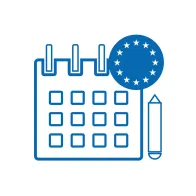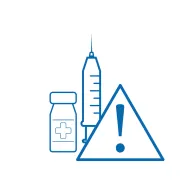When to vaccinate
Vaccines protect people during different stages of life. Vaccines are recommended for different age groups, often for infants and children, but also for teenagers, adults and elderly people.
National vaccination schedules in EU/EEA countries recommend vaccines at specific ages and for specific populations. They also provide recommendations for people with chronic diseases. In some countries such recommendations are done at state or regional level.
Healthcare professionals (e.g. doctors, nurses) have a role in ensuring that patients in their care receive the recommended vaccines at the right time.
Some vaccines are not part of routine vaccination schedules but are targeted at specific groups. For example, people who travel to regions where certain infectious diseases circulate such as yellow fever and typhoid fever may need to have vaccinations. Some countries require proof of certain vaccinations before granting entry to the country.

When should people be vaccinated against diseases? Find out what each country in the EU/EEA recommends here.

Information on mandatory and recommended vaccination in European countries.

Learn more about catch-up vaccination and boosters, given in the case of missed doses or waning immunity.

Who should be careful about getting vaccinated and when will doctors advise against it?

